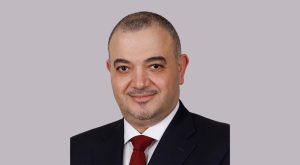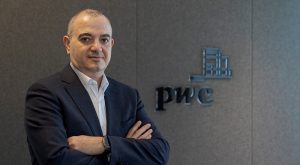PwC’s inaugural Saudi Economy Watch report reveals that Saudi GDP exceeded $1trn, with strong progress towards meeting its Vision 2030 targets in multiple areas. Saudi Arabia’s non-oil private sector is leading in growth for 2023, having accelerated to 5.8% year-on-year (y/y) in Q2 2023 and standing 13.9% higher than in 2019. In contrast, growth in the non-oil government sector slowed to 3.8% (y/y), while the oil sector contracted by -4.3% (y/y) due to production cuts.
The report reviews the Kingdom’s ongoing performance across several economic targets at the midpoint towards achieving Vision 2030’s transformative impact on society and the economy. This positive outcome is attributed to strong investment from the private and public sectors, non-oil revenue growth, ongoing diversification, and economic resilience efforts.
The report indicates notably strong performance on multiple targets.
Female workforce participation has surged to 36% in Q1 2023, already ahead of the 2030 target of 30%, supported by social liberalisation and Saudisation policies. The resulting boost to household incomes has been a critical factor in rising consumption, supporting broader economic growth.
Homeownership among Saudi nationals expanded from a baseline of 47% to 67% – scoring higher than the US and France. These strong results can be attributed to a range of initiatives to boost the supply of affordable homes, including a tax on undeveloped urban land and improved access to finance, with the 2030 target of 70% now close to being achieved.
Economic diversification initiatives are bearing fruit, owing to the commitment of the public sector to major non-oil investments. Non-oil revenues have grown by two and a half times the baseline, increasing from a baseline of $163bn to $411bn in 2022, and is expected to further increase by 11% this year.
The transformation of the Public Investment Fund (PIF), from a small holding company to international dealmaker and manager of giga projects, has been one of the biggest successes of the diversification strategy. PIF is on track to achieve its ambitious target to increase assets under management by more than 10-fold, having already increased by nearly five-fold to $773bn by the end of 2022.
Riyadh AlNajjar, Middle East Chairman of the Board and KSA Senior Partner, announced: “The Kingdom as a whole is making good progress towards achieving Vision 2030, with areas of focus including non-oil diversification, improving infrastructure, advancing digitalisation, fostering a competitive business environment and ensuring good jobs for its citizens through nationalisation targets. The Kingdom’s ambitious initiatives are shaping the foundation of the new Saudi economy which will have a transformative effect on the business environment in the region.
The report highlights that the Kingdom has quickly secured the recovery of the non-oil sector post-COVID, even in the hardest-hit sectors of hospitality, transportation and retail and wholesale trade. As a result, Saudi GDP exceeded $1trn for the first time in 2022.
The ongoing success of these economic initiatives has resulted in Saudi Arabia rising to 17th place in the global economy rankings, with the largest by size of GDP in 2022. It is now targeting 15th place by the end of this year. The International Monetary Fund (IMF) has forecast that the Kingdom can reach $1.3trn in fiscal revenue by the end of 2028.
Faisal Alsarraj, Partner, KSA Deputy Country leader at PwC Middle East, said: “Saudi Arabia’s economy has shown exceptional growth since the launch of Vision 2030. New initiatives and the commitment to its transformation beyond Vision 2030 will provide a secure economic foundation for future generations.”
The PwC Saudi Economy Watch – Vision 2030, on track at the halfway mark, can be read here.






